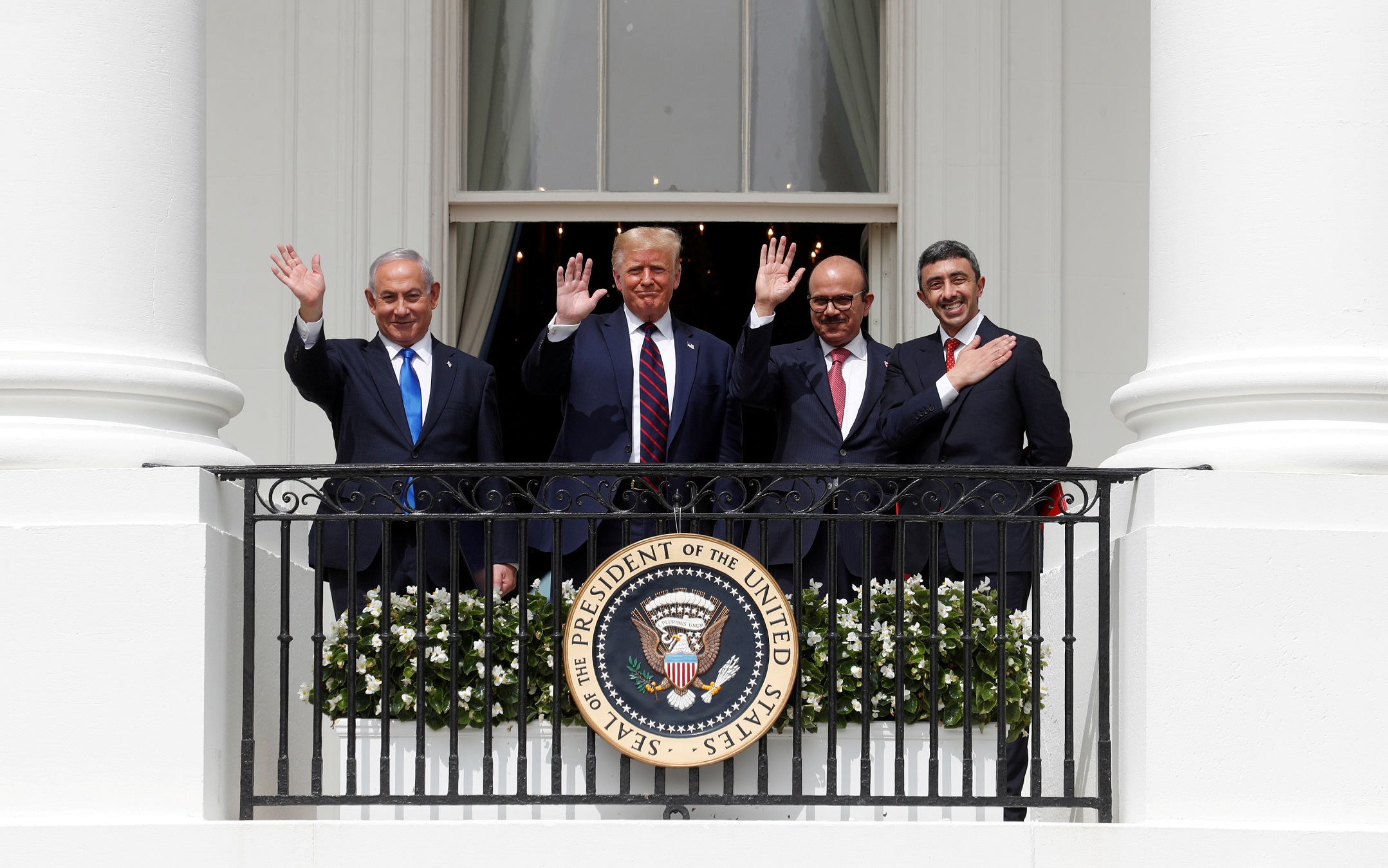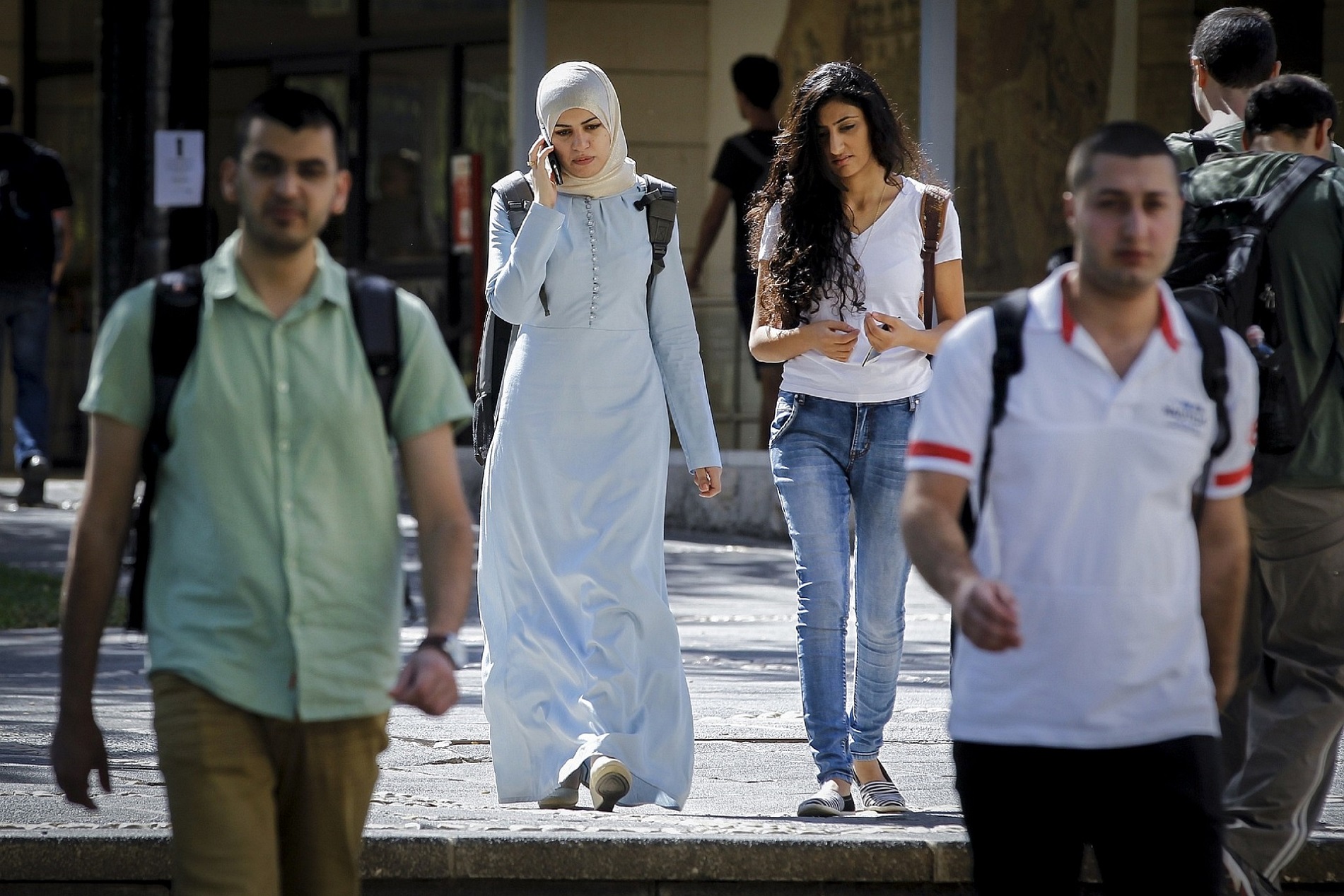Publications
INSS Insight No. 1686, January 31, 2023
An analysis of public opinion polls conducted recently in 14 Arab countries shows that overall, the Arab public is primarily concerned with economic challenges, and views the Israeli-Palestinian issue as marginal. Such views – or despair, it concerns a bleak economic outlook – should not be overlooked because they can serve as a fertile ground for unrest. At the same time, and despite normalization processes with Israel, the refusal to recognize Israel and forge relations with it is widespread and creates potential barriers for regimes regarding public connections with Israel.
The upheaval in the Arab world that began in late 2010 redirected attention toward Arab public opinion. Since then, significant efforts have been made to understand changes and processes underway in Arab societies, with public opinion surveys conducted regularly, including by Arab regimes themselves, in order to identify potential threats, first and foremost, to regime stability. Identifying the mood on what is often referred to as the “Arab street” allows a glimpse, even if it is not free of distortions, into individuals’ opinions about their personal situations and their perceptions of their governments’ economic and foreign policies. Some skepticism is in order as to the validity of polls conducted in societies governed by oppressive authoritarian regimes, but in spite of this conundrum or perhaps because of it, polls are almost the only means of assessing public sentiment.
The World Cup in Qatar offered a glimpse, even if limited, of negative anti-Israel sentiment among different publics in the Arab world and their basic support for the Palestinian cause. These stances, which were relayed in negative rhetoric toward Israeli fans and journalists and in the waving of Palestinian flags by players and fans, were confirmed by the findings of a comprehensive survey conducted by the Qatar-based Arab Center for Research and Policy Studies. The survey also showed the relatively marginal position of Israel and the Palestinian issue in comparison to other issues of concern to the publics in Arab states. The advantage of the survey, which was conducted in 14 Arab countries, lies in showing trends over time (it has been published annually since the beginning of the previous decade, excluding the years 2020-2021, due to restrictions related to the pandemic) and in dividing its conclusions by sub-regions. Its disadvantage is in the Center’s pro-Palestinian, anti-Israel, and anti-American stance, which may create a certain bias in the results. This article presents the central findings of the survey, and contrasts them with the results of other surveys conducted recently in the Arab world.
What Concerns the Arab Public?
The public in Arab countries is primarily concerned with various economic challenges. The challenges facing many countries around the world also confront the Arab world, including the Covid pandemic, rising food prices, supply chain disruptions, and skyrocketing energy costs. "Price inflation and cost of living” was chosen by respondents as the most serious challenge their countries face (21 percent), followed by “negative economic conditions” (18.2 percent). Unemployment, poverty, and a lack of social services were next on the list of challenges defined by respondents (14.9 percent, 6 percent, and 4.5 percent, respectively). Economic issues have been cited as the leading challenge since 2018, overtaking the personal security situation, which during the rise of ISIS was named as the central cause for concern.
Citizens of different countries perceive their economic situation differently – Gulf states respondents see their personal situation positively (only 7 percent stated that they struggle from paycheck to paycheck) and identify the state as heading in a positive economic direction. In contrast, respondents in the Levant (Jordan, Iraq, Lebanon, and Palestine) are in the opposite situation; only 11 percent are able to put money aside to save and the widespread perception of their countries’ economic future is negative. Furthermore, differences among countries go beyond economic issues. In the Gulf there is significant satisfaction with the present situation and 89 percent of respondents believe their countries are headed in the right direction. This is a stark contrast from the Levant, where 84 percent of respondents believe their countries are headed in a negative direction. Such opinions should not be overlooked because they can serve as a fertile ground for unrest.
In a longer perspective, in spite of the spiraling cost of living, individual perceptions of personal economic situations are better than they were in the first half of the previous decade. This positive trend also characterizes attitudes toward the political situation in the respective countries and in relation to the rule of law. However, individual desire to emigrate remains high (and on the rise) with 28 percent of respondents declaring that they wish to emigrate from their country (41 percent in the Levant, versus only 6 percent in the Gulf). This statistic aligns with additional surveys such as the Arab Barometer. Normalization between the UAE and Israel, which led to significant Israeli visibility in public space there (in tourism and business) did not diminish the widespread interest in immigrating there, even among Arabs who reject normalization (according to various surveys, over 50 percent are interested in emigrating to the UAE.)
Attitudes toward Israel and Normalization
Political issues examined in this survey, including the Israeli-Palestinian issue, are perceived as marginal by the various publics. However, the present survey does not present its findings divided by age group. In contrast, in the 2022 Arab Youth Survey – a survey of young people in the Arab world the Palestinian issue ranked third in a list of threats to the Middle East (after the cost of living and unemployment). Moreover, two years after the signing of the Abraham Accords, Israel is perceived as a central regional challenge. In the eyes of respondents, Israel is still the greatest threat to security (38 percent; this is a decrease from early in the previous decade when Israel was perceived as a threat by over 50 percent of respondents). Israel’s policy (during the Bennett-Lapid government) was perceived as endangering the security and stability of the region. “The Israeli threat,” unsurprisingly, is particularly emphasized by respondents from the Palestinian Authority, Lebanon, Algeria, Jordan, and Egypt.

The United States is also a focal point – its policy is perceived by respondents as the second most severe threat to regional security (21 percent) and stability, particularly in the Palestinian context (according to 78 percent of respondents). Only 7 percent of the respondents think that Iran is the most severe threat, while 57 percent stated that its policy undermines stability. Respondents from Iraq, Kuwait, and Saudi Arabia led among those indicating that they perceive Iran as a threat – although 51 percent stated that they did not identify any external threat to their country.
There was a noticeable consensus among respondents regarding the unwillingness by their country to recognize Israel diplomatically. Some 80 percent rejected recognition for various reasons, led by Israel’s approach to the Palestinians and its policy, which is perceived as colonialist. Indeed, from a multiyear perspective, it seems that various aspects of the Palestinian issue are the central stumbling block to normalization (from 38.8 percent to 55.7 percent). Division of the responses between the different regions of the Middle East shows that in the Gulf region, 70 percent reject recognition of Israel, 8 percent support it, and 22 percent don’t know or refuse to answer. The high percentage of those refusing to answer may include respondents who support relations with Israel but are fearful of expressing this publicly. Furthermore, the survey does not include respondents from the UAE or Bahrain, which have official diplomatic relations with Israel and whose populations presumably have a more positive attitude toward Israel. These statistics correspond with those of other surveys, including those conducted by the Washington Institute.
Interestingly, the survey found that the highest declared support for recognizing Israel among the different sub-regions was in the Nile region (Egypt and Sudan), with 15 percent of respondents expressing support for recognition of Israel, 78 percent rejecting recognition, and 7 percent who don’t know or refuse to answer. It is likely that this statistic reflects relatively high support in Sudan, which joined the Abraham Accords, as was seen in other 2022 surveys. The comprehensive Arab Barometer poll showed among 39 percent of respondents in Sudan, in contrast with just 5 percent support in Egypt. In Morocco relatively widespread support for normalization was also recorded (20 percent). Surprisingly, relatively high numbers of support for normalization were recorded in Kuwait, which is perceived as an especially difficult diplomatic challenge for Israel (13 percent), and in Lebanon (11 percent).
It seems that on average across the decade, the percentage who refuse to recognize Israel or conduct relations with it has remained stable, in spite of changes in the Arab space, including the normalization agreements with Israel. In 2014, for example, only 6 percent of respondents were in favor of recognition of Israel, while today 7.5 percent are in favor. However, this represents a decline from the 2016 survey, in which an average of 10 percent across the region supported recognition of Israel. Perhaps this statistic reflects a certain disappointment in relation to expectations from the Abraham Accords; perhaps it is also influenced by the political discourse and by the results of the recent elections in Israel (held toward the end of the survey sampling), and by the rising tide of violence between Palestinians and Israelis. Support for recognition of Israel is 4 percentage points lower than it was in the previous survey, which was held immediately after the signing of the Abraham Accords.
Additional statistics reflecting a decline in support for recognition of Israel and normalization after the Abraham Accords are also found in a number of surveys published in 2022 by the Washington Institute, which indicated a certain decline in support even among respondents in countries with signed agreements with Israel: an average of 80 percent of respondents expressed opposition to normalization. An especially low figure in this context, which approaches the margin of error, was in the aforementioned survey’s findings from Jordan, where only 4 percent support recognition of Israel.
For Israel, therefore, the survey presents a mixed picture. On the one hand, it seems that normalization with Israel is not a central issue for the publics in Arab countries and that in light of their economic challenges, cooperation with Israel that may help address these challenges should not be ruled out. On the other hand, anti-Israel and anti-American sentiment is very widespread and presents some regimes with possible limitations on their present or future connections with Israel. Furthermore, the increasing centrality of the Palestinian issue for attitudes on Israel indicates a rising challenge, to the point of a possible threat to existing normalization agreements, in the event of an escalation in the Israeli-Palestinian arena. Given the expected policy of the Israeli government in this context, this may be a substantial challenge.



